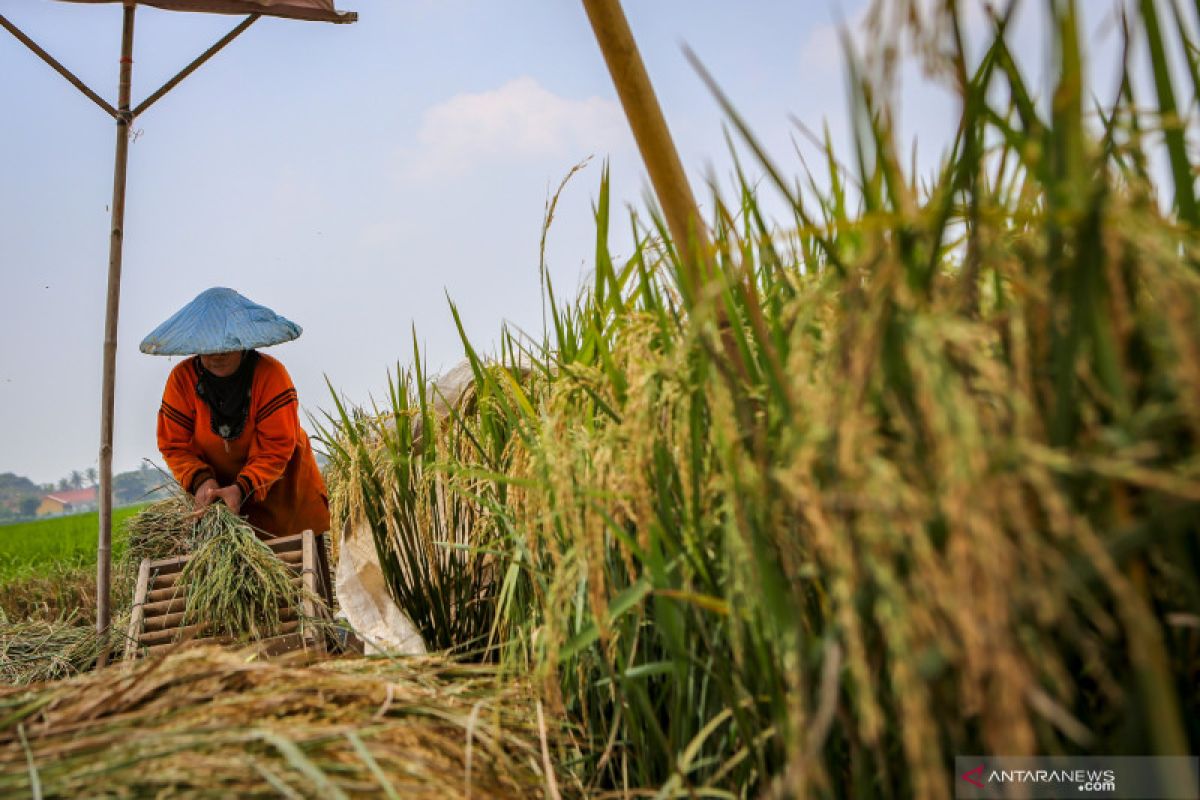
Government must preemptively tackle climate change impacts on rice yield

The extreme drought that Indonesia reeled from in 2019 led to a nearly 7.76 percent decline in the country's rice production, Galuh Octania, a researcher at the Center for Indonesian Policy Studies (CIPS), stated here on Thursday.
"Hence, there is an urgent need to take precautionary measures against climate-related uncertainties as they may impact rice absorption during this year's second harvest period that the State Logistics Agency (Bulog) forecast between September and November," he explained.
Referring to the Information Center for Strategic Food Price (PIHPS), the price of a kilogram of rice tends to hover at Rp11,900 since April 2020, he remarked while emphasizing on the need to maintain stability in rice prices across the country.
To this end, Bulog must optimally maintain the distribution of rice stocks across Indonesia to avoid price disparities between regions with rice surplus and those with a deficit, he stressed.
The government is sentient of the importance of boosting the nation's food security amid this ongoing global COVID-19 pandemic and beyond.
On April 21, 2020, President Joko Widodo (Jokowi) had called on officials to ensure that their assessment of Indonesia's rice stocks was accurate.
The president's directive came on the back of a warning issued by the Food and Agriculture Organization (FAO) of the United Nations that forecast the COVID-19 pandemic to trigger a global food crisis.
Speaking in connection with Indonesia's rice stocks, Coordinating Minister for Economic Affairs Airlangga Hartarto has earlier revealed that the country's rice stocks were estimated to reach 4.7 million tons until the end of 2020.
Hartarto informed the press following a virtual limited cabinet meeting chaired by President Joko Widodo (Jokowi) in Jakarta last May that the National Logistics Agency (Bulog) was tasked with maintaining rice stocks of over one million tons.
Hartarto noted that Bulog will absorb 900 thousand to 1.4 million tons of grains of the farmers.
Meanwhile, Minister of Agriculture Syahrul Yasin Limpo noted that the national stocks of 11 commodities were projected to remain safe until June.
The commodities comprise rice, corn, shallots, garlic, large chili, cayenne pepper, beef, buffalo meat, chicken eggs, cooking oil, and granulated sugar.
EDITED BY INE
Pewarta : Rahmad Nasution
Editor:
Achmad Zaenal M
COPYRIGHT © ANTARA 2025









